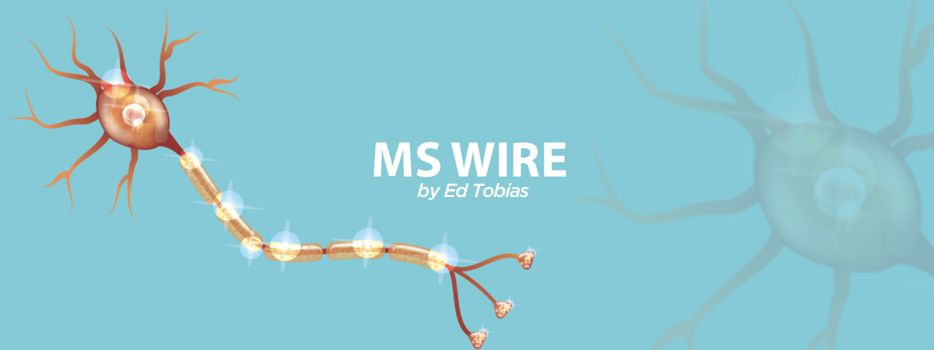MS News That Caught My Eye Last Week: Paramagnetic Lesions, Mavenclad, Relapses in Children, Ocrevus and Rituximab
Written by |

Paramagnetic Rim Lesions Showing Promise as Diagnostic Marker of MS
About a year ago, researchers at the U.S. National Institutes of Health reported that the presence of chronic active lesions in the brain may provide a clue as to how quickly multiple sclerosis symptoms will progress. They called them “smoldering lesions,” and believed that the more smoldering lesions one has when diagnosed, the more likely their MS will be aggressive. These lesions, described as “dark-rimmed spots,” are difficult to see. So, the researchers used a super-strong, 7T MRI — a machine that’s not found in most radiology offices — to look for them.
The lesions in this new study, to my layman’s eye, seem similar. But in this case, they can be seen using a less-powerful 3T MRI, the type that’s in common use.
Inflammatory lesions within the brain, called paramagnetic rim lesions, visible on imaging scans may improve the accuracy of a multiple sclerosis (MS) diagnosis, especially when used in combination with other imaging-based biomarkers, a study reported.
If corroborated in larger future studies, these white matter lesions may serve as an early diagnostic biomarker.
Click here to read the full story.
***
Mavenclad Effectively Lowers Relapse Rates, Study Comparing DMTs Finds
Because Mavenclad was only approved about a year and a half ago, the jury’s still out on its efficacy in patients. This study certainly should be of interest to those considering it as a treatment. However, note that the study was sponsored by Merck Serono S.p.A., a Rome-based affiliate of Merck KGaA, Mavenclad’s developer and marketer.
Mavenclad (cladribine) appears to be better at lowering relapse rates during the first two years of disease in relapsing-remitting multiple sclerosis (RRMS) patients than other MS therapies, including interferon, Copaxone (glatiramer acetate), and Tecfidera (dimethyl fumarate), a head-to-head observational study found.
Mavenclad, however, was less effective at reducing these rates than Tysabri (natalizumab).
Click here to read the full story.
***
Children with MS May Have More Relapses, But They Recover More Fully
At first glance, this seems to be good news about bad news. But because it’s thought that people who fail to recover completely from a first relapse are at greater risk of moving more quickly to secondary progressive MS, this may be extra good news.
Children with multiple sclerosis (MS) recover more quickly and “significantly better” from relapses than do adults — patients with disease onset at age 18 or older, researchers reported.
The study, “Improved relapse recovery in paediatric compared to adult multiple sclerosis,” was published in the journal Brain.
Click here to read the full story.
***
Infection Risk Higher for Ocrevus Than Rituximab, But Cancer Risk Lower
Rituximab isn’t approved for MS use in the U.S., but it’s frequently prescribed off-label. It’s similar to Ocrevus in the way it works. So, it’s interesting to me that this study reports a lower cancer risk for Ocrevus than rituximab, which is approved to treat non-Hodgkin’s lymphoma, a form of cancer.
Ocrevus (ocrelizumab), a second-generation anti-CD20 antibody, may be associated with a greater risk of infections. But it carries a lower risk of cancer and immune reactions than first-generation rituximab in people with multiple sclerosis (MS), according to a real-life study.
The higher incidence of infections linked with Ocrevus’ use may result from a potentially different or more extensive depletion of B-cells — the immune system target of anti-CD20 therapies — compared with rituximab, its researchers noted.
Click here to read the full story.
***
Note: Multiple Sclerosis News Today is strictly a news and information website about the disease. It does not provide medical advice, diagnosis, or treatment. This content is not intended to be a substitute for professional medical advice, diagnosis, or treatment. Always seek the advice of your physician or other qualified health provider with any questions you may have regarding a medical condition. Never disregard professional medical advice or delay in seeking it because of something you have read on this website. The opinions expressed in this column are not those of Multiple Sclerosis News Today or its parent company, Bionews, and are intended to spark discussion about issues pertaining to multiple sclerosis.



Leave a comment
Fill in the required fields to post. Your email address will not be published.